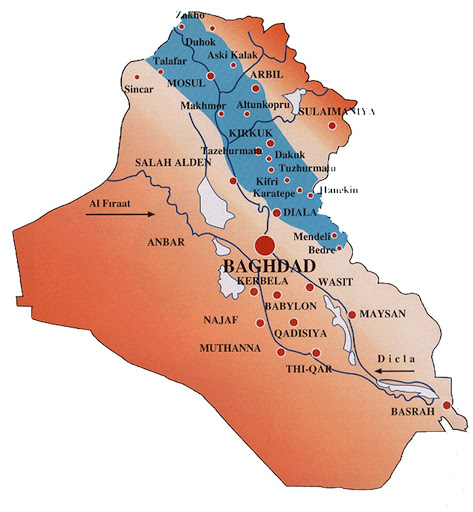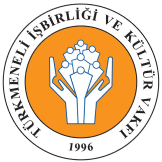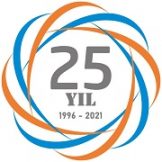
TÜRKMENELİ FOUNDATION
TÜRKMENELİ
Turkmen is the name given to Turkish Oghuz tribes after they accepted Islam. According to the common belief, the word Turkmen means pure and brave Turk. The Iraqi Turkmen dialect falls under the range of the Azeri dialect of Turkish language. The spoken language of Iraqi Turks is Azerbaijani Turkish and the written language is Istanbul Turkish.
History
After the Turkic origin Sumerians, the settlement of Turkmens in Asia Minor dates back to the seventh century BC. In 658 BC, the Saka-Turan Tribes migrated from Central Asia and reached the shores of the Mediterranean through Iran, Eastern Anatolia, Northern Iraq and Northern Syria, and the city of Dakuk was established in that era.
The appearance of Turkmens in Iraq during the Islamic period starts from the year 54 Hijri (675 AD). The Turkish domination in Iraq, which started when the khutbah (sermon) in Baghdad was read on behalf of the Great Seljuk Sultan Tuğrul Bey in 1055, continued for approximately 900 years until 1918. The Oghuz tribes who migrated from Central Asia started to settle these lands 2700 years ago and their distribution in Iraq reached its final form during the Seljuk period. The Turkmens established after the Celayirs and Seljuks, the Begtiginler state in Arbil, the Atabeys in Mosul, the Kipchakogullari dynasty in Kirkuk, the Karakoyunlu and the Akkoyunlu states. Western sources named the region as "Turcomania", that is, Turkmeneli, which extends from Azerbaijan close to Baghdad where these states have ruled for centuries.
Geography
Turkmens have adopted a homeland in the fertile and rich lands which extends from the borders of Syria in the northwest to the Iranian borders in the southeast between the mountainous region and the plain region in the north of Iraq. This region that constitutes the settlement centers of the cities, towns and surrounding villages called Turkmeneli and starts from Talafar in the west, to Mosul, Erbil, Altunköprü, Kirkuk, Dakuk, Tuzhurmatu, Kifri, Hanekin, to Mendeli and Aziziye in the east.
Population
Although there are no exact figures about the population of Turkmens in Iraq; according to the 1957 census of the Iraqi state that accepted officially in the international platforms, Turkish-speaking Turkmens constitute approximately 13% of the Iraqi population. İn addition, the population who lost their mother tongue but is aware of their Turkish origin is estimated to be over one million. Kirkuk, Erbil, Talafer and villages of the Bayat region, which are considered as cultural centers, are the regions where Turkmens mostly live. In addition, several hundred thousands Turkmen live in Baghdad.
Culture
Iraqi Turkmen Culture is a part of the Azerbaijani and Anatolian “Oghuz” culture and still preserves its vitality, especially with poems called Hoyrat and maqam composition s. Turkmens are the group with the highest rate of educated people in Iraq.
The Turkmen Oghuz tribes have made great contributions to civilization and the Turkish culture throughout the history. Among them the following names can be cited as examles: Nesimi, Fuzuli, Hicri Dede, Hasan Görem, Felekoğlu, Salah Nevres, Nesrin Erbil, Mehmet İzzet Hattat in poetry; Osman Musullu, Reşit Küle Rıza, Abdulvahit Küzeci, Abdurrahman Kızılay, Ekrem Tuzlu, Mişko Erbilli in art; Ata Terzibaşı, Molla Sabir, Şakir Sabır Zabıt, Mehmet Hurşit Dakuklu in language and folklore studies; Mustafa Cevat, İbrahim Dakuklu in historical studies; Ali Marufoğlu, Hamza Hamamcı in literature; İhsan Doğramacı in Science, Muzaffereddin Gökbörü, Imaddeddin Zengi in state administration, Ahmet Medeni Kutsizade and Sinan Sait in Journalism.
Among the architectural works reflecting the Turkmen culture in Iraq; Melviye (Spiral) minaret in Samarra, Gökbörü minaret in Erbil, Hadba Minaret, Karasaray, Baştabya in Mosul, Gök Kümbet and historical houses in Kirkuk castle, red church, Kayseriye Kapalı Çarşı (marketing complex) in Kirkuk are only few examples referring to the decades of urbanization in Iraq.
In the history of the Iraqi state, more than one hundred Turkish magazines and newspapers that have been published, reflecting the Turkmen culture. The most important of these are the Beşir, Kirkuk, Yurt, Türkmeneli newspapers and the Kardeşlik magazine.

